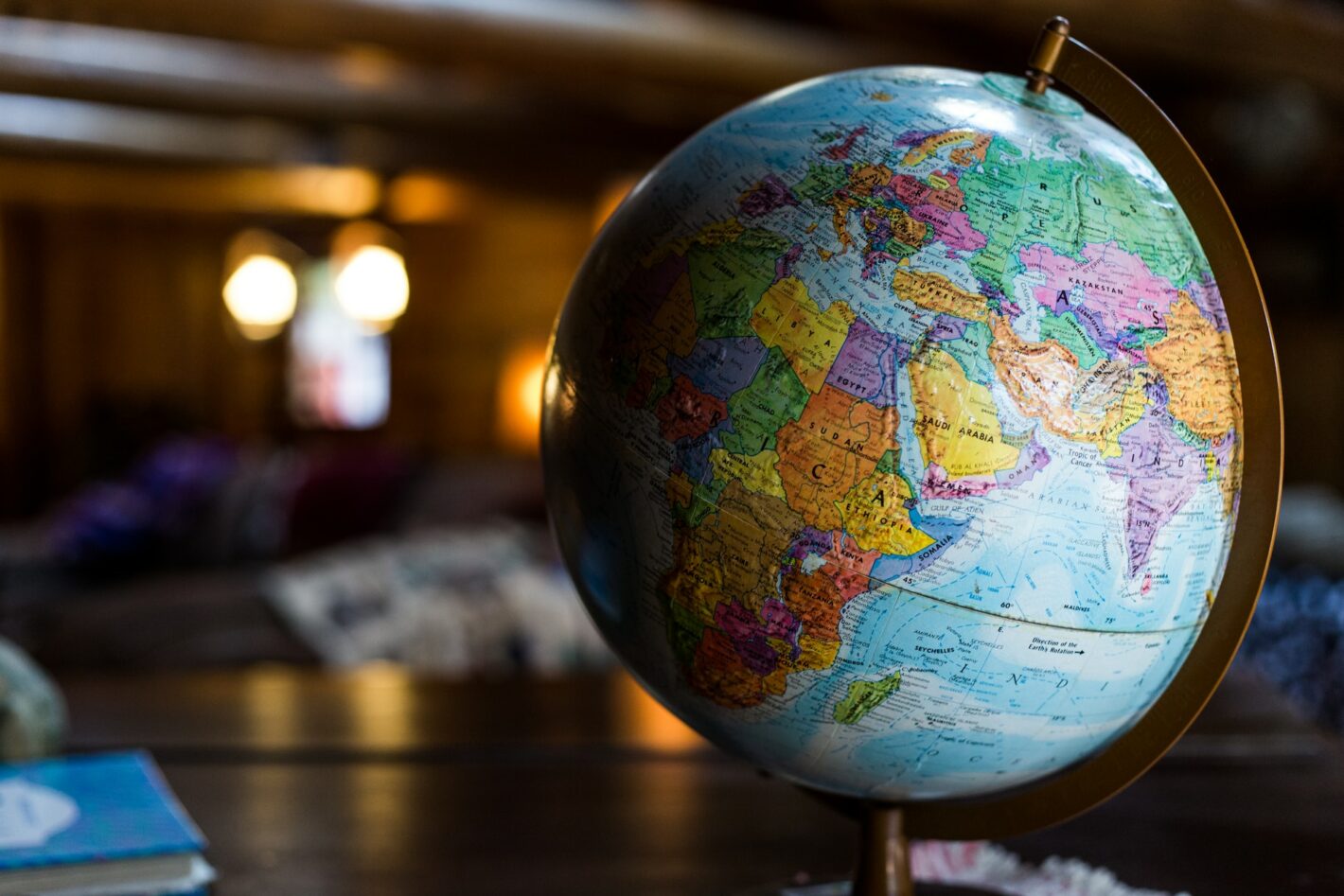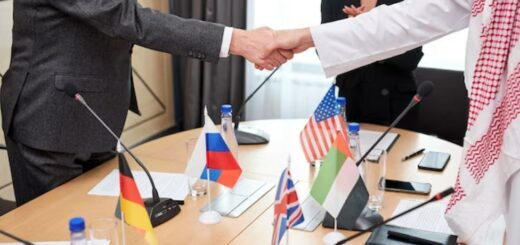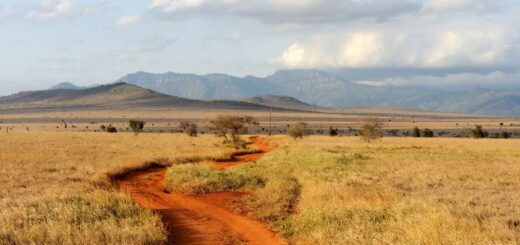Top Foreign Policy and International Relations Think Tanks

Think tanks are central political institutions that engage in interdisciplinary research with the goal of providing expert perspectives on a wide range of political issues and solutions. Their aim is to offer insights through specialized knowledge and networked interactions. They produce publications, reports, and even legislative proposals related to specific political dilemmas.
As a result, governments, industrial enterprises, media outlets, private individuals, social movements, and other interested groups can leverage these resources to achieve their objectives. Below are some internationally recognized think tanks that deserve recognition:
The Earth Institute: Leading Environmental Solutions
Established at Columbia University in 1995, The Earth Institute is a think tank focused on environmental issues. Its primary mission is to identify key global challenges facing humanity. Sustainable development takes center stage in its efforts.
The Earth Institute operates under the principle that existing scientific and technological capabilities can enhance the lives of marginalized individuals while simultaneously safeguarding vital resources that sustain life worldwide. Its partners include representatives from academia, business, government institutions, non-profit organizations, and private individuals. The institute advises states and the United Nations on issues such as Millennium Development Goals and sustainable development.

Friedrich-Ebert Stiftung: Fostering Democracy and Civic Awareness
Founded in 1925 as a political legacy of Friedrich Ebert, Germany’s first democratically elected president, the Friedrich-Ebert Foundation is an autonomous institution affiliated with the Social Democratic Party of Germany (SPD). This prominent German foundation, headquartered in Bonn and Berlin, champions democracy, political awareness, and intellectually exceptional students.
The foundation’s activities span across more than 100 countries, with a primary mission to support democratic values, promote political awareness, and nurture students with exceptional intellectual and moral qualities.
The Heritage Foundation: Advocating Conservative Public Policy
Based in Washington, D.C., The Heritage Foundation is a conservative think tank specializing in public policy. For nearly five decades, it has been a steadfast proponent of ideas such as free markets, limited government, individual liberties, traditional American principles, and a strong military.
Notably, its annual publication, the “Index of Economic Freedom,” assesses a nation’s economic freedom based on property rights and protection from government regulations on a global scale.
European Council on Foreign Relations: Influencing European Foreign Policy
Founded in 2007, the European Council on Foreign Relations (ECFR) is a pan-European think tank with branches in seven European capitals. ECFR specializes in analyzing European foreign and security policy, offering decision-makers, advocates, and leaders a platform to voice their perspectives.
ECFR stimulates intellectual discourse on Europe’s global standing and forges alliances to drive European-level reforms. With branches in Berlin, Paris, Madrid, London, Rome, Warsaw, and Sofia, ECFR runs four research programs: “Asia and China,” “Wider Europe,” “European Power,” and “Middle East and North Africa.”
Human Rights Watch: Advocating for Universal Human Rights
Headquartered in New York, Human Rights Watch (HRW) is an international non-governmental organization dedicated to investigating and protecting human rights. Its activities encompass:
- Safeguarding the rights of refugees, children, migrants, and political prisoners;
- Applying pressure on governments, politicians, corporations, and individual human rights violators to condemn abuses and uphold fundamental human rights.
HRW produces research reports highlighting alleged violations of human rights standards enshrined in the Universal Declaration of Human Rights and other internationally recognized principles. These findings draw global attention to human rights abuses, utilize diplomatic channels, establish direct connections with affected individuals, and provide support during challenging times.
HRW addresses issues such as gender inequality, torture, military exploitation of minors, government corruption, criminal justice system abuses, and abortion rights in its reports.
The Council on Foreign Relations: Influencing Foreign Policy Discourse
Since its establishment in 1921, the Council on Foreign Relations (CFR) has been an autonomous, non-partisan organization, an analytical center, and a publisher. The organization’s headquarters is located in New York, with a branch in Washington, D.C. The CFR has played a significant role in shaping American policy regarding mutual deterrence, arms control, and nuclear non-proliferation.
CFR publishes the renowned “Foreign Affairs” journal and conducts independent task forces composed of various experts who produce research, encompassing data analysis and policy recommendations.
The Cato Institute: Advancing Libertarian Principles
Located in Washington, D.C., The Cato Institute is a leading American libertarian think tank. Established to advocate, engage with the media, and influence society, the institute aligns with libertarian political ideology. It advocates for a limited role of the state in both domestic and international affairs and for robust protection of civil rights.
This stance implies reducing or eliminating taxes, harboring skepticism toward the Federal Reserve System, privatizing various governmental institutions and programs (such as Social Security, the Affordable Care Act, and the United States Postal Service), demilitarizing the police, and avoiding interference in international relations.
French Institute of International Relations: Addressing Global Challenges
The French Institute of International Relations (IFRI), founded in 1979 by Thierry de Montbrial under the influence of similar institutions in the United States, is located in Paris, France. This analytical center primarily focuses on international issues, with the goal of fostering dialogue and research collaboration between decision-makers and scholars on critical global matters.
IFRI’s policy research aims to shed light on key international problems and targets policymakers, economists, educational institutions, thought leaders, and representatives of civil society.
Horasis: Enabling Sustainable Development
Founded in 2005 by Frank-Jürgen Richter, a former director of the World Economic Forum, Horasis is a nonprofit international analytical center headquartered in Zurich, Switzerland. It aims to promote innovation and sustainable development in emerging markets.
Horasis facilitates the creation of collaborative frameworks and information exchange, especially between developed economies and countries with emerging economies. The analytical center often serves as an incubator for new initiatives and annually holds the Horasis Global Meeting in Cascais, Portugal, bringing together business leaders, government representatives, researchers, and scholars to discuss issues impacting both business and society as a whole. Economic development, innovation, migration, and inequality are recurring discussion topics.
Gulf Research Center: Shedding Light on Persian Gulf Dynamics
The Gulf Research Center (GRC), established in July 2000 by Abdulaziz Sager and headquartered in Geneva, where he hails from, is an impartial, private educational institution and analytical center specializing in providing insights on the Gulf region. GRC’s activities span multidisciplinary areas, including research in social sciences, education, media engagement, and consulting services.
Encompassing topics such as social sciences in the Gulf region, international relations, and the policies of Gulf Cooperation Council (GCC) member states, e-learning, leadership programs, GRC’s electronic library, and the news site “Persian Gulf in the Media,” the center ensures a comprehensive understanding of the intricate dynamics of the Persian Gulf region.
The recognition of these leading analytical centers in international relations enables individuals, organizations, and governments to leverage rich expert analysis and political recommendations for navigating complex landscapes of global relations.
Conclusion
In a world characterized by complex geopolitical landscapes and dynamic challenges, the role of analytical centers in the realm of international relations is paramount. These organizations serve as beacons of knowledge, offering expert analysis, political recommendations, and innovative solutions to navigate the complexities of global society.
From ecological sustainability to human rights protection, from economic freedom to political awareness, the analytical centers discussed in this article illuminate various facets of our interconnected world.
As we move forward into an era of unprecedented change, the wisdom and foresight of these analytical centers become increasingly invaluable. Their research, publications, and collaborative efforts not only influence policy but also empower governments, organizations, and individuals to make informed decisions that shape the trajectory of our shared future.
In a world thirsting for significant landmarks and comprehensive knowledge, the impact of these analytical centers in international relations extends far beyond their walls. Their contribution promises to create a more informed, just, and harmonious global society. Let us remember that the collective pursuit of knowledge and understanding is the cornerstone of a world moving toward progress.


